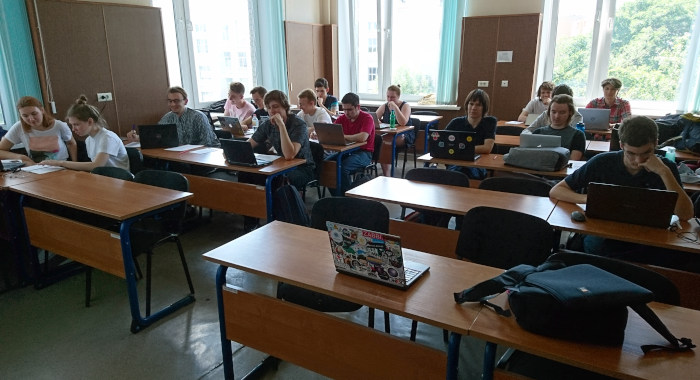
Over the past year, my colleague
Anastasia Lubennikova and I have taught a course called “Technologies and Database Development”. This course is devoted to the development of relational database management systems with an emphasis on a concrete implementation in the face of PostgreSQL. We collaborated with several universities at once. At
HSE it was a compulsory subject, designed for 4th year students (in the photo, students take an exam). In
VMK MSU it was a subject of choice, which students of different courses attended.
Since the educational process in these universities is slightly different (grading system, modules against semesters, etc.), we had to adapt the course. Below is his complete program, including everything that has been read in both universities, with all the latest fixes:
The catalog on Google Drive with lectures is
here . ZIP-archive with all the lectures in PDF format can be downloaded
from here (4.4 MB) . Separate PDF files
are also available on GitHub . As for the license issue, you can freely distribute and modify slides, as well as read courses on them, the main thing is not to assign yourself authorship. Generally, if someone decides to read the course on our slides, we will be only happy and will be happy to help with the preparation.
Anticipating the appearance of a natural question in the comments, I note that at the moment we decided to take a break from conducting courses. This case turned out to be very laborious, even considering that now we have all the course materials. However, if you are interested in developing databases, you can join the Telegram channel
@dbmsdev , which was created to communicate with our students. There, we will be happy to answer questions both on this course and on the development of a DBMS in general (as far as our modest experience allows).
In conclusion, I have a little fun fact for you. If it seems to you that you do not fully understand something in a particular subject area, the best way to figure it out is to start a corresponding course :)